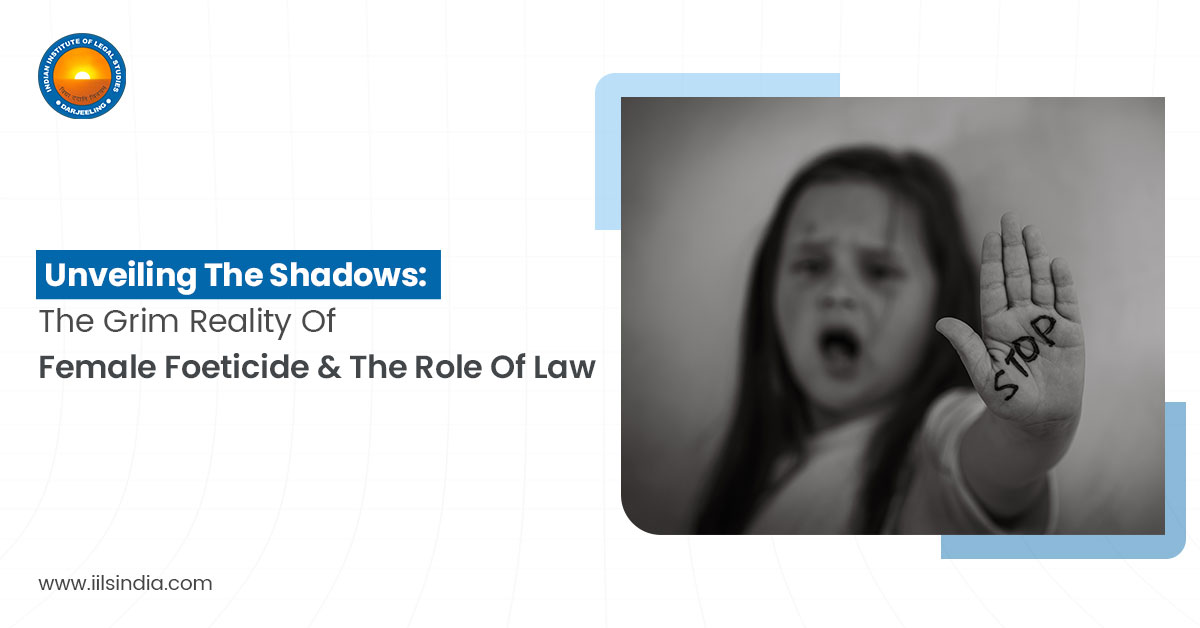Introduction
Female foeticide, a social malady deeply rooted in gender bias, continues to cast a dark shadow over our society. This practice, fuelled by age-old prejudices, not only infringes upon the right to life but also perpetuates gender inequality. In this blog post, we delve into the disconcerting issue of female foeticide, exploring its causes, consequences, and the pivotal role of law in combating this menace. Additionally, we will shed light on some of the best colleges for law, where aspiring legal minds can equip themselves with the knowledge and skills to make a difference.
Understanding Female Foeticide
Female foeticide refers to the selective abortion of female foetuses, predominantly driven by cultural preferences for male children. The roots of this practice are embedded in patriarchal norms, where sons are often perceived as economic assets and inheritors of family legacies. The repercussions, however, are far-reaching, leading to an imbalanced sex ratio and perpetuating discrimination against women.
Causes of Female Foeticide
- Gender Bias: Deep-seated societal biases towards males contribute to the preference for male offspring.
- Economic Factors: Misguided notions that sons will provide financial support in old age lead to the devaluation of female children.
- Lack of Education: Communities with lower literacy rates often succumb to traditional beliefs, perpetuating the cycle of gender discrimination.
- Weak Enforcement of Laws: Inadequate implementation and enforcement of laws against sex-selective practices contribute to the persistence of female foeticide.
Consequences of Female Foeticide
- Skewed Sex Ratio: Regions plagued by female foeticide witness a skewed sex ratio, posing social challenges and impacting demographic stability.
- Gender Imbalance: The shortage of women can contribute to increased violence against women and the objectification of the remaining female population.
- Societal Degeneration: The practice perpetuates a vicious cycle of discrimination, impacting the overall well-being of society.
The Role of Law in Combating Female Foeticide: Legislation plays a pivotal role in curbing female foeticide and promoting gender equality. Some key legal measures include:
- Pre-Conception and Pre-Natal Diagnostic Techniques (Prohibition of Sex Selection) Act, 1994: This Act prohibits sex determination and regulates the use of technologies for prenatal diagnostic procedures.
- Women-centric Policies: Implementation of policies that empower women economically and socially can contribute to changing mindsets and reducing the preference for male children.
- Strict Enforcement: Strengthening the enforcement mechanisms to ensure strict adherence to existing laws is crucial in eliminating this practice.
Best Colleges for Law: For those passionate about addressing societal issues such as female foeticide through legal avenues, pursuing a law degree from a reputable institution is paramount. Some of the best colleges for law include:
- Harvard Law School
- Indian Institute of Legal Studies
- Yale Law School
- Stanford Law School
- Columbia Law School
- National Law School of India University (NLSIU)
- London School of Economics and Political Science (LSE)
- Faculty of Law, University of Oxford
Conclusion
Addressing the grave issue of female foeticide requires a multi-faceted approach, with legal intervention being a crucial component. Aspiring legal minds can contribute significantly to this cause by enrolling in some of the best colleges for law globally. By combining legal expertise with a commitment to social justice, we can strive towards building a society that values every life, regardless of gender.

